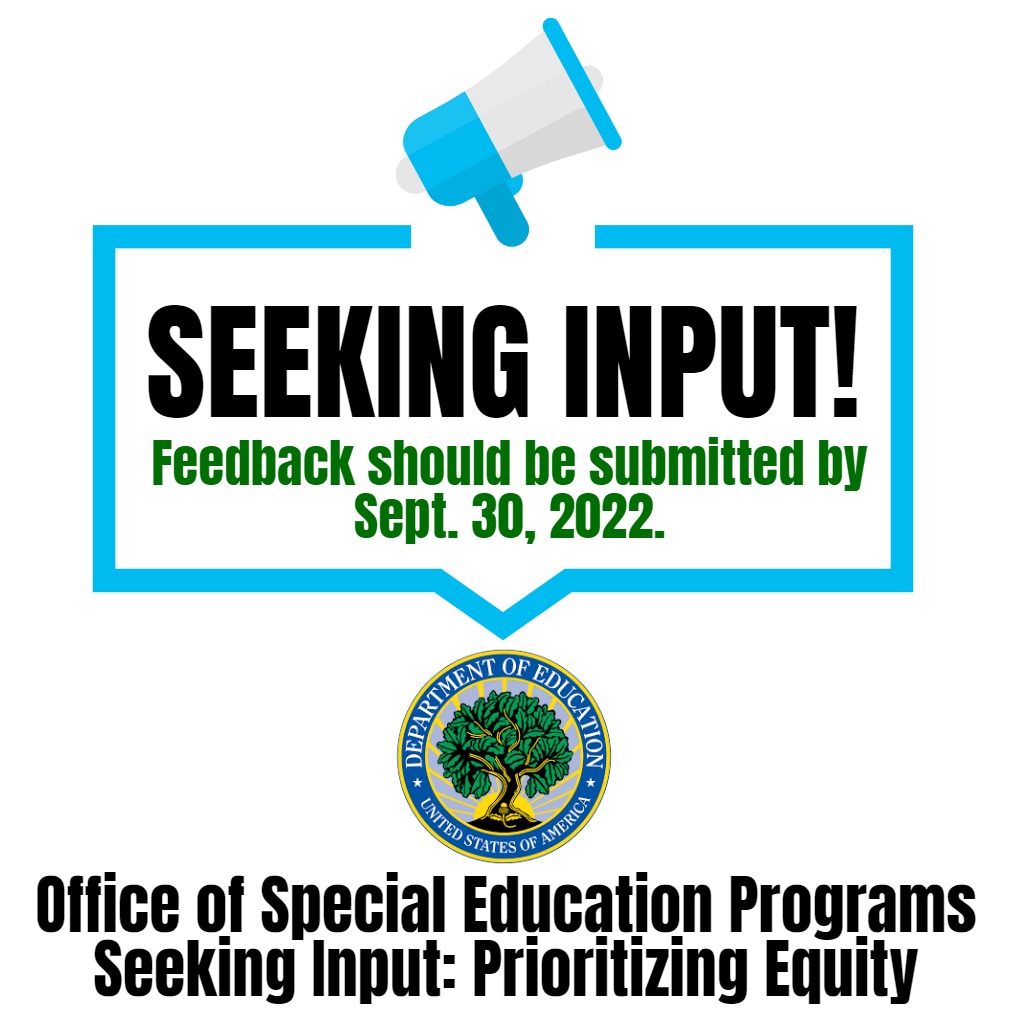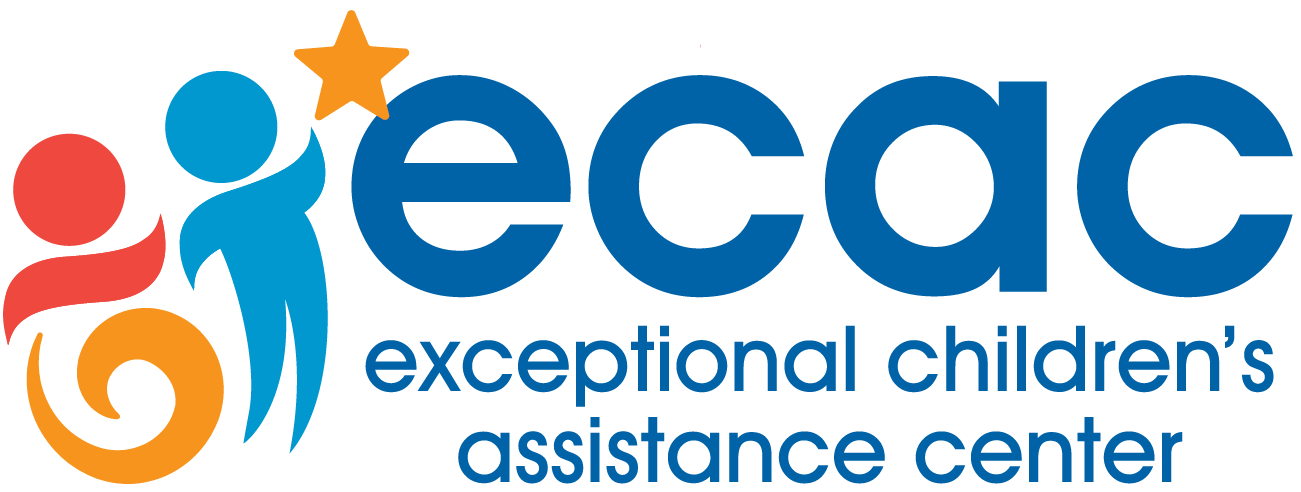About
U.S. Department of Education, Office of Special Education Programs Seeking Input: Prioritizing Equity

WASHINGTON (Sept. 2, 2022) — The Department of Education (ED) is examining how it can advance equity in the programs it administers.
The Office of Special Education Programs (OSEP) monitors states’ compliance with the Individuals with Disabilities Education Act (IDEA) to ensure that states provide early intervention services for infants and toddlers with disabilities and the free appropriate public education (FAPE) of children with disabilities.
To accomplish this task, OSEP has developed the Results Driven Accountability (RDA) system. Using this framework, OSEP examines both the educational results and outcomes for children with disabilities in each State as well as how a State is meeting the compliance requirements of IDEA.
Each year, OSEP reviews the State Performance Plan/Annual Performance Report (SPP/APR), information obtained through monitoring visits, and any other publicly available information to determine how well each State meets the requirements of the IDEA. States are assigned one of the following categories:
- Meets requirements and purposes of the IDEA;
- Needs assistance in implementing the requirements of Part B or Part C of the IDEA;
- Needs intervention in implementing the requirements of Part B or Part C of the IDEA; or
- Needs substantial intervention in implementing the requirements of Part B or Part C of the IDEA.
As noted in this year’s determination letters, and consistent with the Executive Order 13985 on Advancing Racial Equity and Support for Underserved Communities Through the Federal Government, ED is examining how the 2023 determinations process can promote equity. Specifically, we are considering whether and how to use data from the current SPP/APR that can be seen in the Part B and Part C measurement tables, data from the current IDEA 618 data collections, and other publicly available data. For example, OSEP is thinking about how to consider and weight data when making determinations in a manner that accurately represents the implementation of IDEA and results for historically marginalized populations.
ED recognizes that the determinations process is complex, and we welcome suggestions for improvements and innovative solutions.
If you would like to share your feedback, please email SPPAPR@ed.gov and include “Determinations Feedback” in the subject line. Feedback should be submitted by Sept. 30, 2022. ED will not respond to individual comments but will consider any feedback submitted by Sept. 30, 2022.

